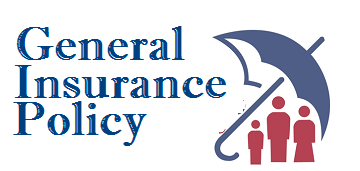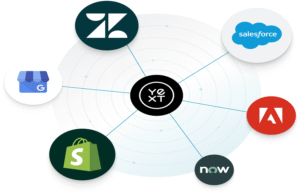How to Ensure Your Commercial Property Insurance Meets Your Business Needs
5 min read
Whether you own a bustling retail shop, a quiet office space, or a sprawling industrial facility, your commercial property is likely one of your most significant business investments. Protecting that investment with the right commercial property insurance is not just a smart business move—it’s essential. But with so many insurance products on the market, how do you know if your policy truly meets your business needs?
In this article, we’ll walk you through the steps to ensure your commercial property insurance is not only adequate but tailored specifically to your operations, location, industry risks, and future growth.
Understanding What Commercial Property Insurance Covers
At its core, commercial property insurance is designed to cover damage to physical assets used in your business. This can include:
- Buildings you own or lease
- Fixtures and fittings
- Equipment and machinery
- Inventory and stock
- Furniture and office contents
It typically provides protection against risks like fire, storm, theft, vandalism, and accidental damage. Depending on your provider and policy type, it may also include coverage for loss of income due to business interruption.
But here’s the catch: not all policies are created equal. Coverage levels, exclusions, and policy limits can vary widely, so a one-size-fits-all approach rarely works in business insurance.
1. Evaluate Your Specific Risks
The first step in tailoring your policy is to assess your business’s unique risk profile. Consider the following:
- Industry: A café has different risks than a warehouse or a medical clinic. For instance, fire risk may be higher in a commercial kitchen, while theft might be a bigger concern for a retail store. Getting cafe insurance could be a beneficial idea.
- Location: Is your property in a flood-prone area? Are bushfires a seasonal threat? Is your business in a high-crime suburb? These environmental and local risks will influence your required coverage.
- Building Condition and Age: Older buildings may pose higher fire or structural risks and can affect premium costs or coverage conditions.
- On-site Equipment and Stock Value: Businesses with expensive machinery or high-value stock will need higher cover limits.
By clearly identifying these factors, you can better understand which features your policy must include and what optional extras might be necessary.
2. Don’t Underestimate Replacement Costs
One of the most common and costly mistakes businesses make is underinsuring their assets. This often occurs when owners base cover amounts on purchase price or depreciated value instead of current replacement cost.
In the event of a total loss, you want your insurance to cover the full cost of rebuilding or replacing everything you’ve lost—at today’s prices. Construction costs, materials, and labour expenses continue to rise, so make sure your policy keeps pace.
Top Tip: Engage a professional valuer or builder to estimate the replacement value of your property and contents. This adds accuracy and can support any claims you may need to make in the future.
3. Understand Policy Exclusions and Limits
Exclusions are conditions or circumstances under which your insurer won’t pay out. These can significantly affect your claim if you’re not aware of them in advance. Common exclusions include:
- Wear and tear or poor maintenance
- Damage caused by pests or mould
- Flood damage (unless added specifically)
- Electrical or mechanical breakdown
Additionally, some policies include sub-limits for certain items or damage types. For example, your policy may cover machinery breakdown up to $10,000 even though your equipment is worth $50,000.
What to do: Go through your policy with a fine-tooth comb. If there’s anything unclear or ambiguous, ask your broker or insurer for clarification. It’s better to ask now than to be caught short during a claim.
4. Consider Business Interruption Cover
Would your business survive if you had to shut down for weeks or months due to an insured event like fire or flood?
Business interruption insurance (often an add-on to commercial property cover) protects your cash flow by covering:
- Loss of income
- Ongoing expenses (like rent, wages, and utilities)
- Relocation or temporary premises costs
This type of insurance can be a lifeline during difficult periods and is particularly valuable for businesses with a long recovery time or niche operations that are hard to replace quickly.
5. Tailor Cover for Leased or Shared Properties
If you lease your premises, don’t assume the landlord’s insurance covers your needs. While building insurance may be their responsibility, contents, stock, and business interruption cover are still up to you.
Similarly, if you share your premises with other businesses, ensure you understand the terms of your lease or co-tenancy agreement. In these scenarios, customised insurance becomes even more critical to avoid coverage gaps.
6. Review and Update Regularly
Your business isn’t static—your insurance policy shouldn’t be either. An annual review is essential, especially if:
- You’ve renovated or expanded the premises
- You’ve purchased new equipment or increased inventory
- You’ve changed your business activities
- There have been changes to local laws or safety requirements
Also, don’t wait until renewal time. If anything significant changes during the year, let your insurer know immediately to ensure your cover is still appropriate.
7. Work with a Qualified Insurance Broker
Insurance policies are complex, full stop. Working with a licensed broker gives you access to expert advice, policy comparisons, and often better value cover. A broker can:
- Help you identify hidden risks
- Recommend suitable cover limits
- Explain policy wording in plain English
- Negotiate better terms or premiums on your behalf
They’re also invaluable when it comes to lodging a claim—advocating for your business and helping you get back on track faster.
Final Thoughts
Commercial property insurance is not a set-and-forget business expense. It’s a strategic asset that protects your livelihood, your staff, and your ability to keep serving customers. By taking the time to evaluate your risks, customise your cover, and regularly review your policy, you can avoid nasty surprises and safeguard your future.
Whether you’re just starting out or have an established operation, now is the perfect time to assess whether your current commercial property insurance truly aligns with your business needs.







